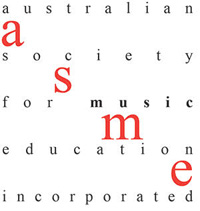The way you can measure a society’s soul is by the way that it treats its children.
Nelson Mandela
Issue No. 3 – 29 June 2005
Welcome to Kidz Newz especially to the new subscribers from the Geraldton PD. This is a regular newsletter with information and teaching tips for anyone involved with young children. Please forward this to anyone you feel it may be of interest to.
Feedback is welcome.
For those of you about to have a two week break, have a well-earned rest. I look forward to seeing you at future PDs and sending you more inspiration.
Inspirational Message of the Week
There came a time when the risk to remain tight in the bud was more painful than the risk it took to blossom. Anis Nin
Ten Steps to Successful Music Teaching in The Early Childhood Classroom
( Steps 9 to 10 )
Young children learn by doing, by being actively involved in their learning through exploring and experimenting, through copying and acting out. And so it is with learning music, the foundations for which are best learnt while developing primary language. As such, a successful early childhood music program must incorporate movement and should quite naturally involve learning across the curriculum. The music program, therefore, can form the basis for the whole curriculum.
Here are the next couple of tips to expand your skills and enjoyment of teaching music.
- Initially the teacher should model the movements but not necessarily do all the running around. Choose a child to model for you (or the Teaching Assistant or even a parent) if you prefer not to or are unable to model the movements yourself. Observe the children’s ability to perform the skills in movement, music, drama, listening and social interaction. The music lesson thus contains so many more outcomes. You are then leveraging your time by combining learning areas. That is why the movements need to be modeled appropriately.
- Finish each session with stretching and relaxation. (Stretches should never hurt.) After a ‘mat session’ music lesson the stretch only needs to be a full body stretch on the floor, after which the children close their eyes and listen to the music. Initially –
-
- Tell them what you want them to listen out for, or
- Tell them a story of what the music is about, or
- Ask them to tell you what they think the music is telling them.
If you don’t relax the children at the end of the lesson, thus utilizing this time for the affective aspect of music, they’ll be unsettled for the rest of the day, especially if it’s a dance and drama session. When they are used to relaxing at the end of the lesson they will happily lie down and relax but they need to be taught how to first. Each relaxation session, therefore, does not necessarily have to involve active listening but initially it must. Children are sometimes loud and boisterous because they think that’s how they are expected to behave. Give them permission to be still and silent and teach them how. They need it.
Entertainment
This is from Wayne Mansfield’s newsletter The Maverick Spirit 22nd June 2005
Inner Strength (source unknown)
If you can start the day without caffeine or pep pills,
If you can be cheerful, ignoring aches and pains,
If you can resist complaining and boring people with your troubles,
If you can understand when loved ones are too busy to give you time,
If you can overlook when people take things out on you when, through no fault of yours, something goes wrong,
If you can take criticism and blame without resentment,
If you can face the world without lies and deceit,
If you can conquer tension without medical help,
If you can relax without liquor,
If you can sleep without the aid of drugs,
Then’ you are probably a dog!
Feedback
“My kids love doing the relaxation activities.” Jude Tupman, Geraldton
“They are always asking to do ‘Giants & Fairies’ – they love it.” Donna Marwick-O’Brien, Perth
About The Author
Marlene Rattigan B.A., Dip. Ed. (ECS), CELTA
Marlene Rattigan is an Early Childhood teacher, a teacher of English as a Second Language, and from 1987-2000 was a nationally accredited fitness leader. Her background is in music education. A keen interest in motor development in children led to the creation of Kidz-Fiz-Biz which she has taught successfully for 13 years. Marlene also conducts workshops for children, teachers and parents at schools, in the community and at festivals. She has produced teaching manuals complete with audio CDs which are an extension of her ‘Kidz-Fiz-Biz’ program.
Kidz.Fiz.Biz
57 Henry Lawson Walk, East Perth WA 6004
T: +61 8 9325 1204 M: 0410 64 2781 E: info@kidzfizbiz.com
Kidz-Fiz-Biz is a regular update for professionals in the Early Education Learning community. If you would like to stop receiving these advices you can manage your subscription by following the instructions below.
We have your email address as %%EMAIL%%.
If you do not wish to receive any further editions of this email bulletin then please Click on the link below to CANCEL your subscription or EDIT your details:

